
He Yubin, a native of Foshan born in the 1980s, is the apprentice of Li Wei, the inheritor of the intangible cultural heritage of lion head making. Many years ago, he took over the family business of making traditional dragon and lion products from his father and founded his own cultural brand of awakening lion.
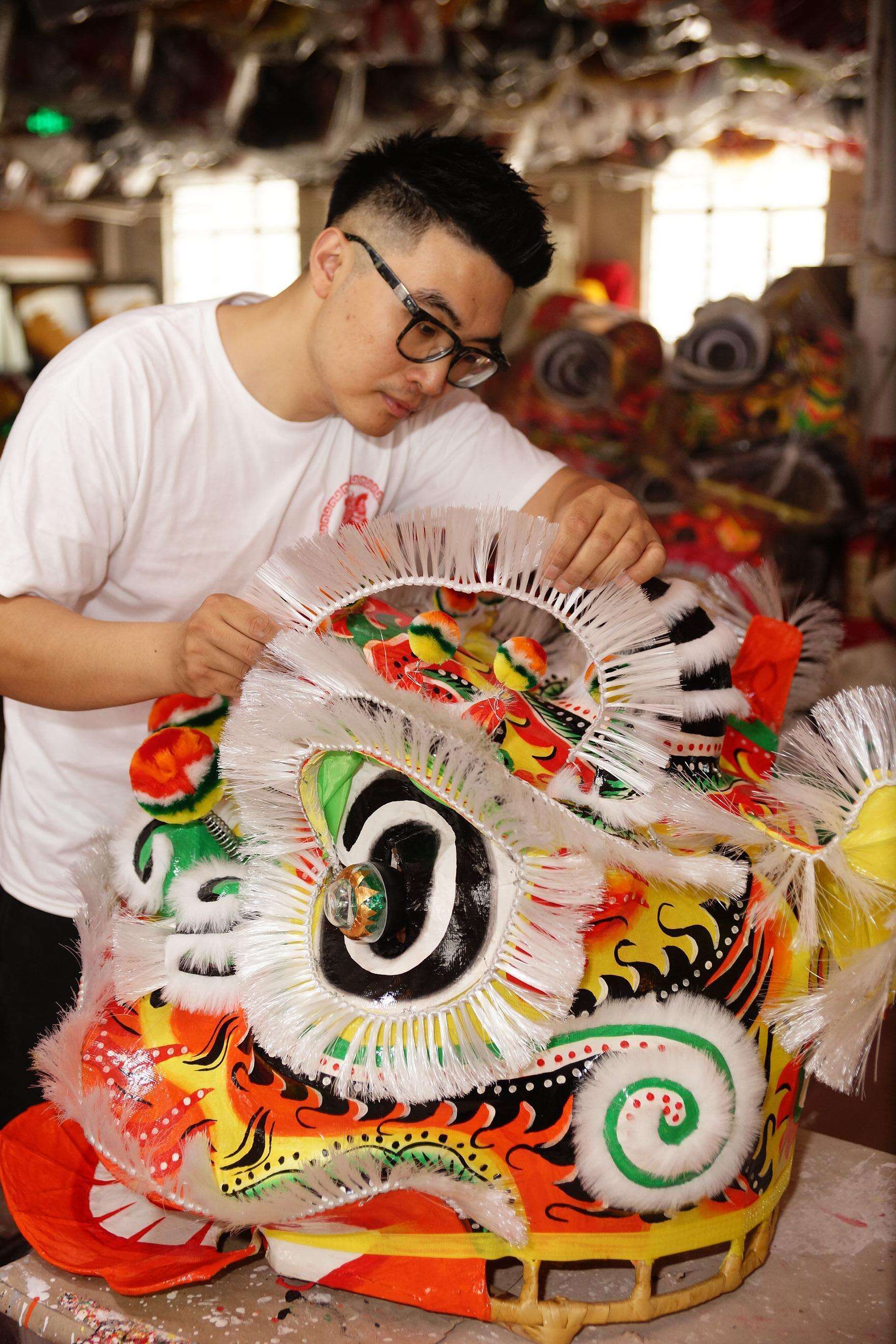
He Yubin's father used to be the director of the Foshan Folk Art Research Institute, which specialized in making traditional lanterns and flower lanterns. He Yubin grew up in the atmosphere of traditional craftsmanship created by his ancestors, and such experience can be regarded as his initiation into the art of lion head making.
In 2006, He Yubin graduated from college with a major in animation design and later chose his own career path as a salesman at a booming internet company. "At that time, I never thought about taking over the lion head making business." There was a huge gap between this traditional handicraft and the emerging internet industry. However, several familiar craftsmen under He Yubin's father suddenly started their own businesses, and the call of his family made He Yubin ultimately decide to devote himself to this traditional profession of lion drum and lion head making.
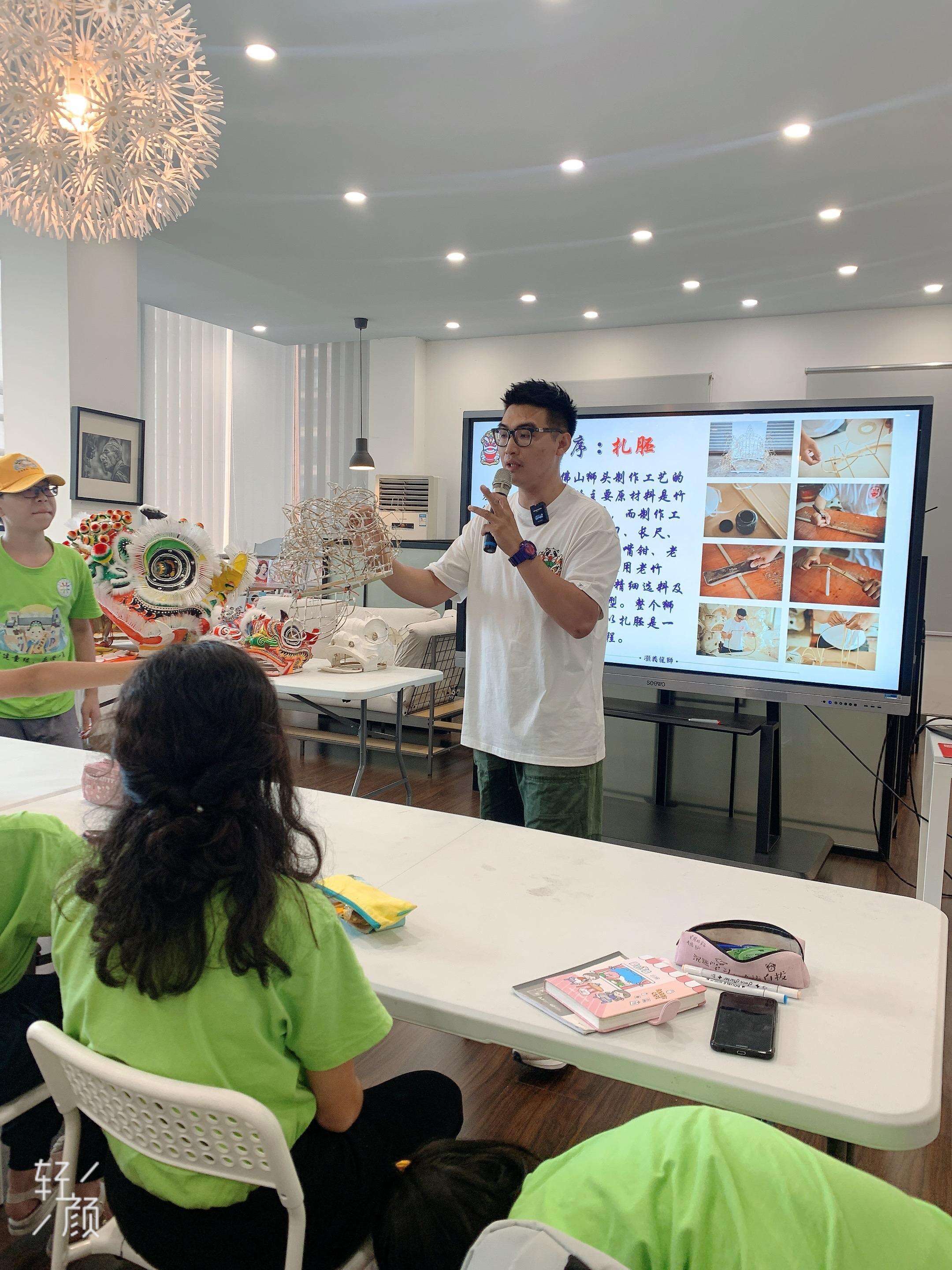
After unremitting efforts, He Yubin became an apprentice of Li Wei, the inheritor of the intangible cultural heritage of lion head making. "Our master has very strict requirements for us, and he has always encouraged us to innovate. He believes that only innovation can promote the lion dance culture more widely and further. That is the reason why we have always adhered to the concept of maintaining tradition while innovating in our future lion head making."
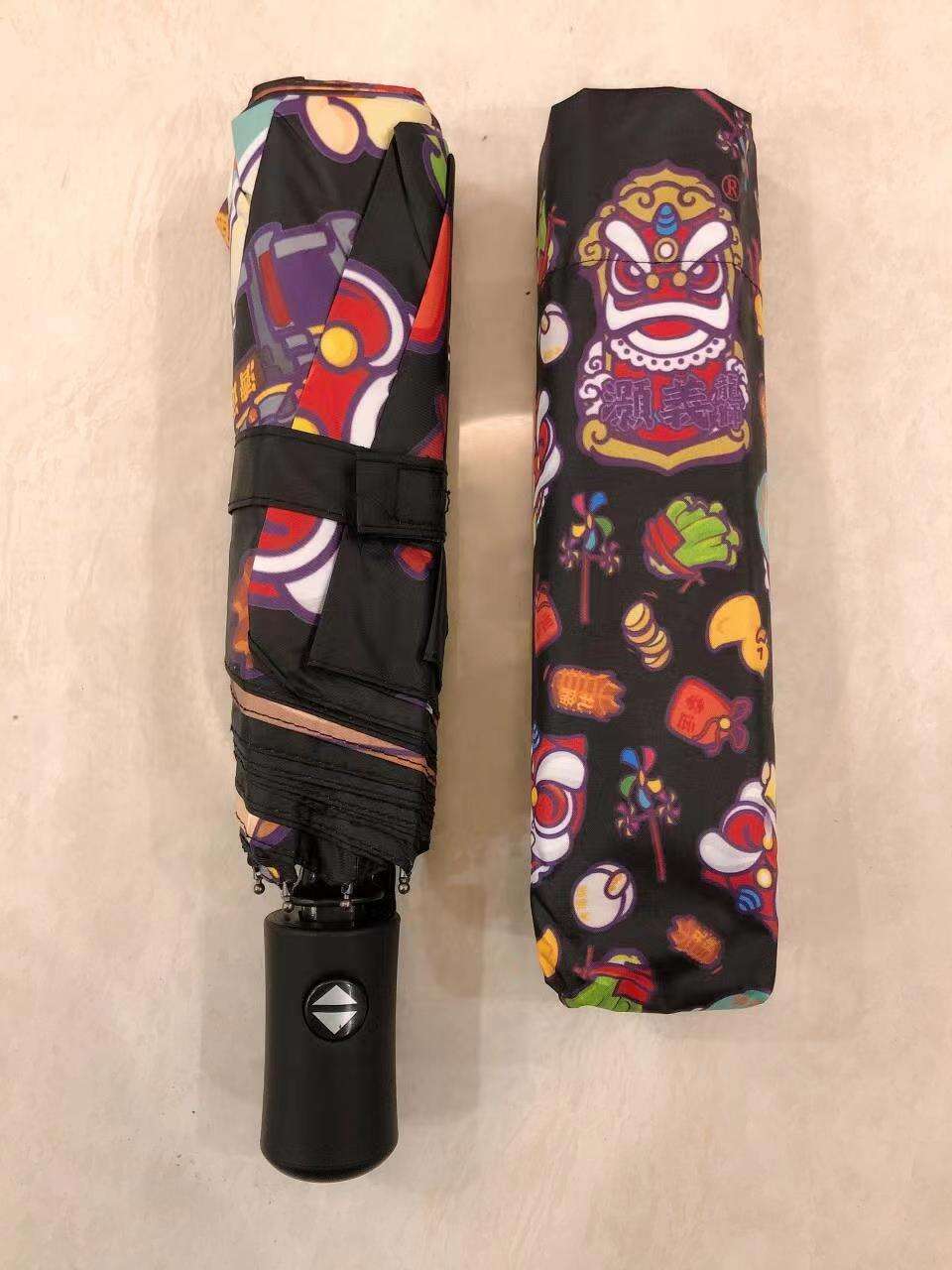
"I have always believed that as practitioners, we should not stand still. In recent years, we have established and launched a series of cultural and creative products, hoping that awakening lion culture can be known by the public and especially the younger consumers." To achieve this, He Yubin not only utilizes his expertise in animation design to develop a series of animated images for the awakening lion but also actively designs awakening lion elements for various famous brands such as VANS.
Although He has been actively promoting the development of awakening lion culture, the lion head making industry still faces unavoidable difficulties. "On the one hand, the consumer group of lion heads is relatively small, which leads to the low-income of practitioners; on the other hand, multiple factors have led to a gap in the young inheritors of dragon and lion head making, and there are no young people learning this traditional technique." He Yubin suggested that relevant majors should be established in some schools to cultivate technical talents. Therefore, these students can work in factories like He's or go to rural areas to encourage and guide more villagers who are interested in this traditional handicraft to learn systematically, thus cultivating talents for lion head making.
“新扎师兄”何宇斌:醒狮传承不能原地踏步
土生土长的80后佛山仔何宇斌是狮头扎作非遗传承人黎伟的徒弟,多年前,他从父亲手里接过家族龙狮产品企业,并创办了自己的醒狮文化品牌。
何宇斌父亲曾是佛山民间艺术社车间负责人,当年以扎作传统花灯、灯笼为主。何宇斌从小就在父辈手艺中成长,这算得上是何宇斌的扎作启蒙课。
2006年,大学动漫设计毕业的何宇斌选择了一条自己的事业之路,在风头正旺的互联网公司从事销售工作。“那时候的我根本没想过要接手扎作这个手工活”。传统的扎作与新兴的互联网之间隔着一条难以跨越的鸿沟。可何宇斌父亲手下几位熟悉的扎作师傅突然自立门户,亲情的召唤让何宇斌最终决定进入狮鼓与狮头制作这个老行当中。
经过不懈努力,何宇斌拜入狮头扎作非遗传承人黎伟门下学习狮头扎作,“师傅对我们的要求很严格,但也一直鼓励我们创新,他认为,只有创新才能将醒狮文化推得更广更远。正是如此,我们在日后的狮头扎作创作中一直坚持守正创新的理念”。
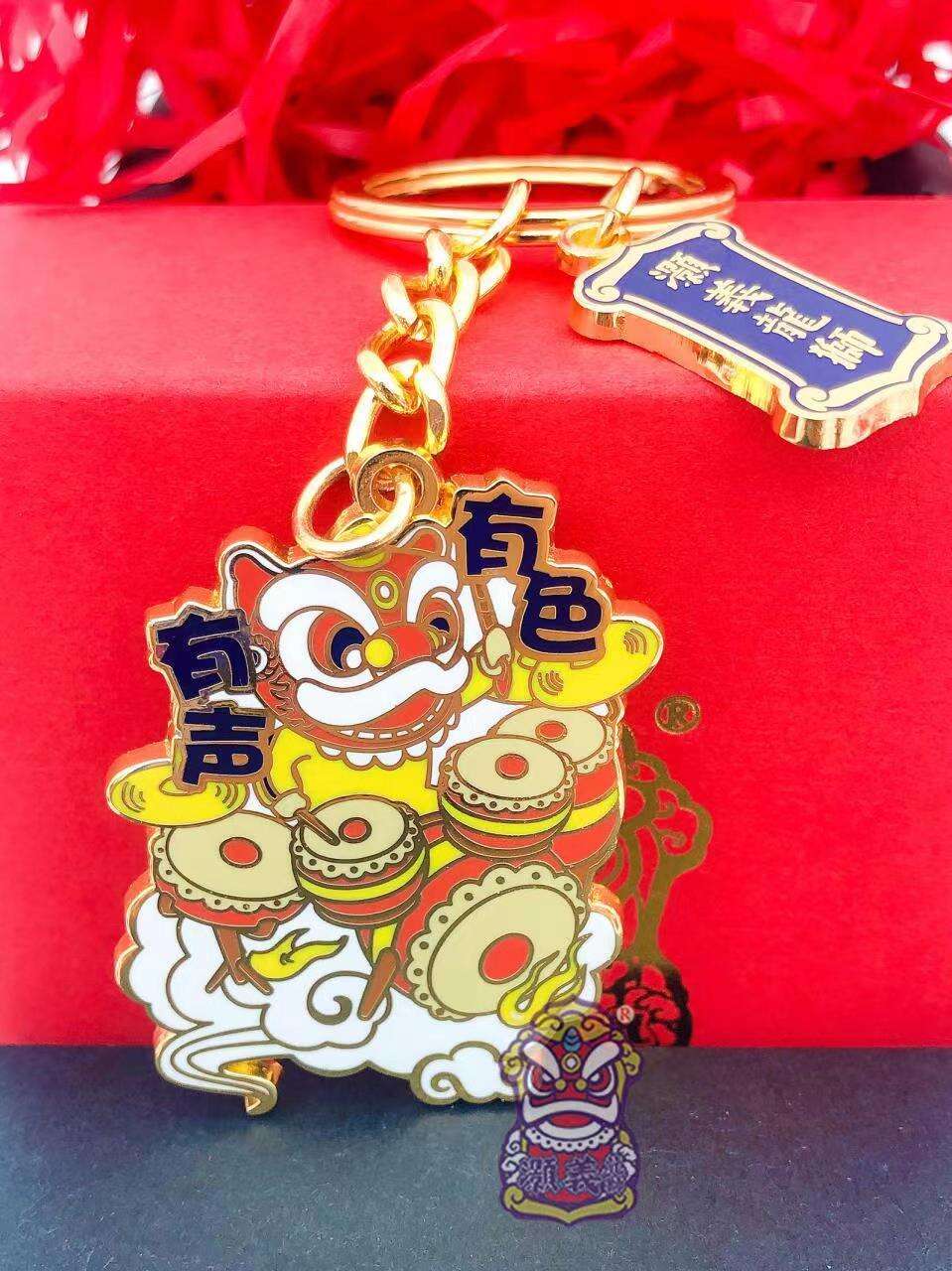
“我一直认为,作为从业者不要原地踏步。我们近年来成立推出一系列文创产品,就是希望醒狮文化能面向大众,面向青年消费群体。”为此,何宇斌不仅发挥自己的动漫设计专长,为醒狮开发了一系列动漫形象,还积极跨界,为潮牌VANS等一众品牌设计品牌元素醒狮。
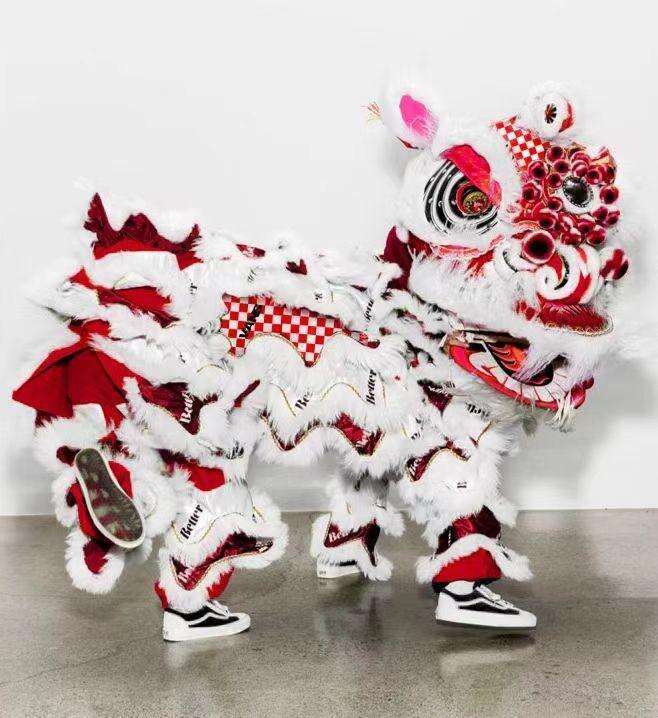
虽然在积极推动醒狮文化的前行,但狮头扎作行业依旧面临不可回避的发展困境。“一方面,狮头的消费群体比较窄,从业者收入不高;另一方面,多重因素导致龙狮扎作的年轻从业群体断层,眼下基本没有年轻人来学习龙狮扎作。”何宇斌建议在部分学校专门开设相关专业,培养技术人才,踏入社会后可以在像他们这样的工厂进行实习工作,或者走进乡村,组织引导更多爱好这类手工艺的村民来学习,从而为狮头扎作培养后备军。
策划 | 孙爱群 吴江
统筹 | 刘佳宁 孙晶
文 | 羊城晚报全媒体记者 刘佳宁 孙绮曼
译 | 白心怡
图 | 受访者供图
-
Torrential rainstorms inundate Pearl River Delta, flooding reported in Guangzhou, Shenzhen, And Hong Kong
2023-09-08 23:46:39 -
Video | Have you ever seen the "Devil Tribe" where people can stay?#2023 SRDICE
2023-09-08 18:56:00 -
Video | Oklahoma musician: Oklahoma & Gansu are old friends now#2023 SRDICE
2023-09-08 18:56:06 -
Video | American specialist in Dunhuang Studies: Dunhuang represents type of cultural diversity#2023 SRDICE
2023-09-08 18:56:12






